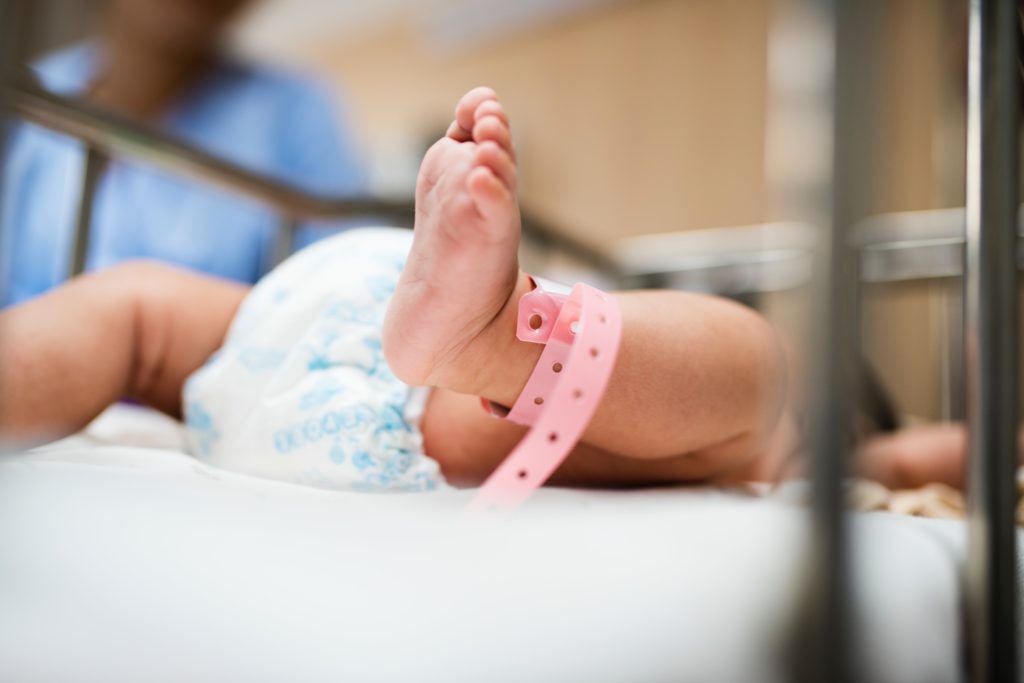
A new blood test developed by a team of international scientists has shown great potential to identify and possibly prevent infant brain injury just hours after birth.
The research, sponsored by Imperial College London, was conducted in India, where there are up to a million annual cases of oxygen deprivation at birth. This form of asphyxia is one cause behind cerebral (brain) palsy (weakness), a group of neurological disorders caused by fetal brain injury. These lifelong incurable disorders, which can present in several different forms, adversely affect motor function, balance and other basic abilities.
There are several other causes of cerebral palsy (CP). Premature labor or infections in the mother, including German measles (rubella) and chickenpox, can cause fetal brain injury.
According to the American Pregnancy Association, CP typically goes undiagnosed until the toddler years, and approximately two out of three children out of every 1,000 have it. About half a million children and adults in the U.S. live with some form of the disease.
Symptoms of cerebral palsy include exaggerated reflex responses and ataxia, defined by the Mayo Clinic as a “lack of muscle control or coordination of voluntary movements, such as walking or picking up objects.” Ataxia can cause problems with speech, vision and swallowing. Between 70-80 percent of sufferers have spastic CP, which stiffens the muscles so much that even slight movement is difficult.
According to the Centers for Disease Control (CDC), symptoms can vary widely from person to person; severely afflicted persons may be unable to walk or care for themselves at all, while others may just walk differently and can care for themselves. Some CP patients also suffer from seizures and learning disabilities. About 4 in 10 children with CP also have epilepsy, and 1 in 10 are autistic.
CP symptoms in babies 3-6 months old can include not holding up their head, uncontrollable drooling and not mastering crawling or rolling over at the appropriate time.
How can the new blood test help?
Regardless of the form it takes, CP is a serious affliction that makes everyday life a challenge for those who develop the disease.
The new blood test, which also helps identify epilepsy and other brain disorders, uses a prototype to find specific genes linked to neurological issues. Suppose an infant is deprived of oxygen at birth, which can happen for several reasons. In that case, the resulting damage could take anywhere from hours to months to fully develop, making it very difficult to catch a problem in the early stages. Identifying the “switching on or off” genes – or difference in expression between genes – between babies who develop problems and those who do not, before it becomes permanent, could help lessen the severity of CP and other disorders.
In the study, 45 babies had their blood drawn six hours after birth and again at 18 months old to see which had developed disorders and which had not. Eight hundred fifty-five genes total, two in particular, were expressed differently between the two groups. Further study of the two most different genes could create new preventative measures for future cases. Until that time, established cautionary measures are the best tool against CP.
While some cases of CP are congenital, meaning the damage is caused before birth, CP can also be triggered by medical negligence. These instances can include umbilical cord oxygen cutoff, skull fractures, improper fetal monitoring and errors made during C-sections.
Given the lifelong severity of CP, there’s no question that careless healthcare providers should pay for their mistakes. Our dedicated team at Paulson & Nance has the tenacity and experience to help make sure the families of CP sufferers receive what they need to cope with this terrible disease. Contact us today if you or someone you know needs help with a birth injury case.
@thumbnail.jpg)
Both an Emory School of Law graduate and MBA graduate of Goizueta Business School at Emory, Chris Nace focuses his practice on areas of medical malpractice, drug and product liability, motor vehicle accidents, wrongful death, employment discrimination and other negligence and personal injury matters.










Comments for this article are closed.